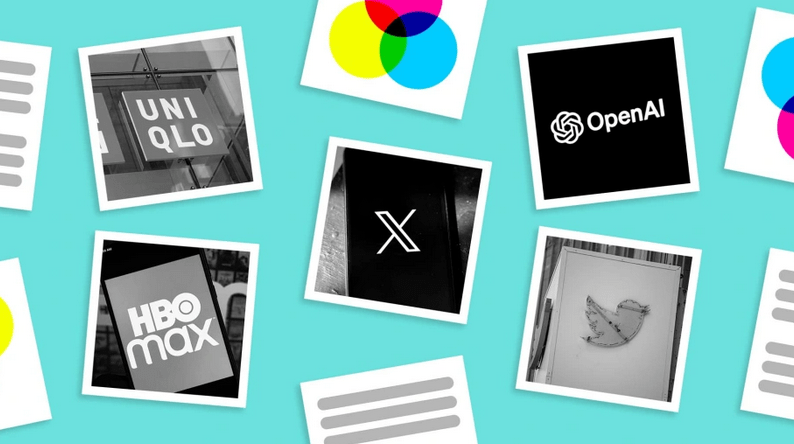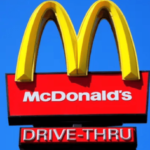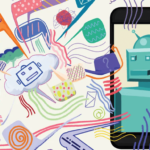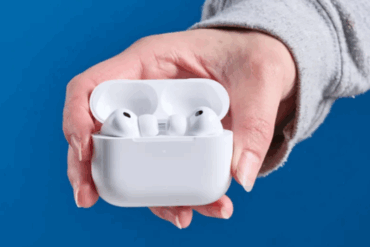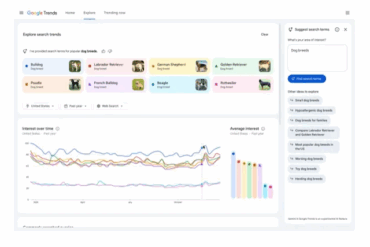Companies pivoted away from weird names in 2023, but some made questionable decisions to walk away from established branding built up over decades.
Making a good first impression with potential customers is critical for any business, and your brand name has a lot to do with that. Still, choosing a name can be an underappreciated aspect of branding.
That’s according to Justin Angle, a marketing professor at the University of Montana, who points out that few touch points on the customer journey are as meaningful as the initial introduction to the brand itself. “The name of the brand is often the first thing that the customer–or potential customer at that point–encounters, so it’s a critical part of the puzzle,” Angle says.
The names founders choose for their companies often reflect the broader culture at the time, and 2023 was no exception. Fordham University professor Dawn Lerman, who researches how language impacts consumers as they evaluate and choose brands, says 2023 marked a pivot away from weirder names and a return to normalcy. For years, startups, particularly in the technology sector, embraced disemvoweled brand names like Tumblr, Flickr, and Mud/Wtr out of necessity to avoid existing trademarks, and as a way to communicate that the company offered something unique and innovative. But over this past year, Lerman says, brand names have instead tended to be shorter, straightforward, and actual words.
“Consumers are looking for some stability in their lives at a time when there is economic trouble, social trouble, political trouble, cultural trouble, you name it,” says Lerman. “Having a brand name that is more simple, that communicates what it offers, I think is a reaction to that.”
Here are some of the brand names that resonated with consumers over the past year–and some that missed the mark.
OpenAI
OpenAI, which has dominated headlines over the last 12 months with its launch of ChatGPT and the board’s short-lived ouster of CEO Sam Altman, uses its name as a direct nod to the open-source nature of the company’s technology. “It’s a great example of a tech company that put a very simple name out there that tells us consumers, the world, what they’re all about,” says Lerman.
The name also represents broader trends in our use of language, according to University of Calgary marketing professor Ruth Pogacar, who studies how linguistics can impact brand perception and consumer choice. “Names beginning with vowels are having a resurgence perhaps with both people and brands,” she says. Think Swiss athletic brand On, supplement company Athletic Greens, and buy-now-pay-later business Afterpay, as well as iconic brands such as Adidas, Amazon, Apple, and Instagram.
Shein and Uniqlo
While OpenAI leaned into an adjective that best described the company’s ethos, two of the most successful clothing companies over the past year have names that don’t convey much of anything about their brands. They are not even English words. Still, that hasn’t deterred American consumers. Gen Z favourite fast-fashion brands Uniqlo, whose Japanese parent company reported record net profits of $1.99 billion for the fiscal year ending August 31, and Shein, which is reportedly seeking a $90 billion valuation for its planned IPO, have cultivated massive customer bases in the U.S. with names that don’t represent specific styles or product lines.
“They defy branding in a way, because there’s not much branding on the products they sell,” says Angle. “The products are sort of generic, like nice merino sweaters with no logos or patterns that aren’t really brand specific.”
Max, formerly HBO Max
This past year also included some high-profile examples of questionable branding decisions, the biggest lesson from which may be: don’t rebrand if you don’t have to. There’s no reason to throw away years of brand equity that your company has worked hard to build up. After the merger of Warner Media and Discovery, the HBOMax streaming service dropped what were arguably its three most important letters, rebranding as just Max. “HBO, to jettison decades of brand equity by renaming its app Max, which is meaningless,…it doesn’t make a lick of sense,” says Pogacar.
The University of Montana’s Angle says this name change is the latest in a long line of missteps for the brand, which has cycled through four names for its streaming app. “The HBO brand has been terribly managed in the streaming era…They just diluted it in so many ways by slicing it up.” he says. “Consolidating it into a single brand with Max is, I think, a step in the right direction, but it still feels like it’s an attempt to clean up a self-generated mass.”
Twitter rebranded to X
Warner Bros. Discovery CEO David Zaslav was not the only executive to walk away from years of valuable brand equity in 2023. This past July, Twitter ditched its bird logo and its name when owner Elon Musk rebranded the social media site as X.
Angle says it’s difficult to try to theorize a real rationale for the Twitter name change outside of Musk’s own eccentricness. “That one is like the biggest head-scratcher to me,” he says. “There is a story that’s trying to be told there. I just don’t think it makes a lot of sense.”
Despite the questionable branding decisions of Max and X, Pogacar predicts that we will see fewer embarrassing brand flops in the future. “As globalization has evolved and companies have gotten savvier, I think we don’t see as much of that anymore–which is too bad for the joke lists of terrible brands, but it’s probably good for business.”
Feature Image Credit: Illustration: Inc; Photo: Getty Images

